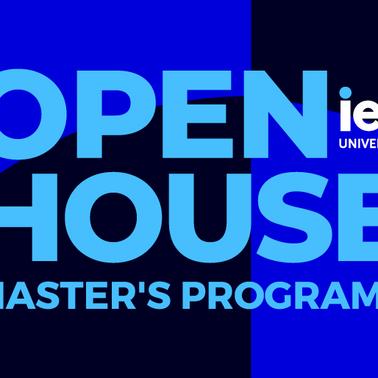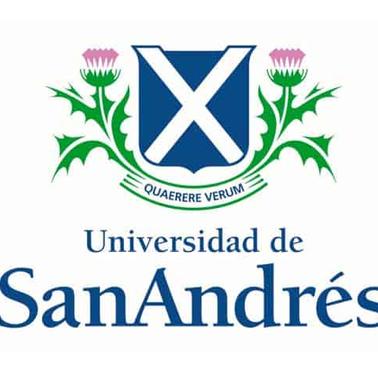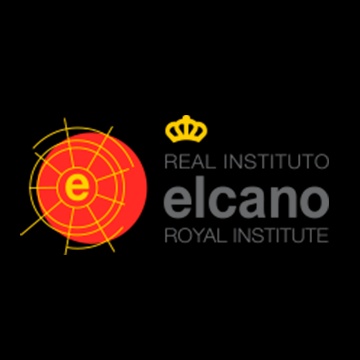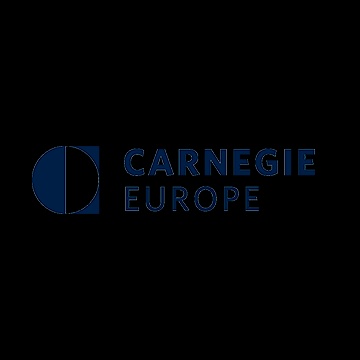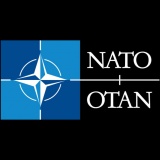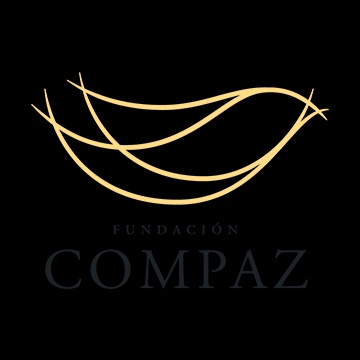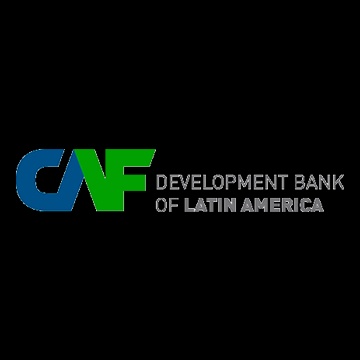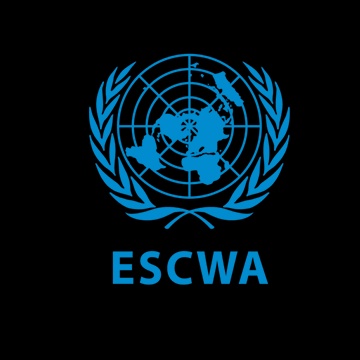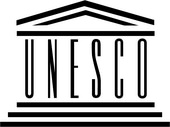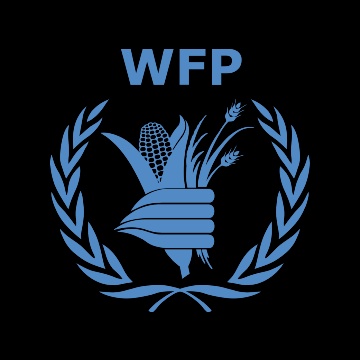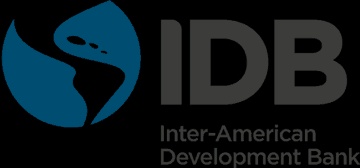
Master in International Relations
A UNIQUE PROGRAM
The Master in International Relations is designed to fit each student’s individual preferred area of study and is built around four core pillars—Management and Analytical Skills, Geopolitics and Diplomacy, International Economics and Business, and Global Governance and International Cooperation. Moreover, the program also allows you to select one of three specializations:
- Geopolitics and Diplomacy
- International Economics and Business
- Global Governance and International Cooperation
FOCUS ON THE REGION THAT MOST INTERESTS YOU
The Master in International Relations allows you to personalize your learning experience even further, giving you a deeper understanding of a particular region. In addition to your selected specialization track, you’ll have the opportunity to select a specific region to explore its culture, history and role in international relations. You can choose from:
- China and East Asia
- Europe and North America
- Africa
- The Middle East and North Africa
- Latin America
This dual approach ensures you are well-versed in your chosen field while also grasping the unique cultural and geopolitical nuances of your selected region.

EXPLORE THE MASTER IN INTERNATIONAL RELATIONS PROGRAM
- PRE-PROGRAM
- TERMS10 months
- Final project
- ADD-ONS
- DUAL DEGREES WITH PARTNER UNIVERSITIES
- 1ST TERMSEPTEMBER – DECEMBER
- 2ND TERMJANUARY - APRIL
- 3RD TERM3 MONTHS
- BRUSSELS AND BEYOND
- CERTIFICATE ON FOUNDATIONS OF SUSTAINABILITY
- SPECIAL MENTION IN MASTER´S DIPLOMA
- PERSONAL & CAREER DEVELOPMENT
- Exchanges
- DUAL DEGREE WITH HERTIE
The pre-program is a mandatory introductory period, unless you pass an exam beforehand. During this module, you will explore key themes on the dynamics of global affairs, including economics, quantitative skills and statistics and the broad foundations of international studies. The courses in the Pre-program include:
ECONOMICS PRE-COURSE
This pre-course has been designed to provide you with an understanding of core economic principles and how they apply to real-world issues. By taking this course, you will learn the key economic concepts, as well as fiscal and monetary policies, that will be essential during your master’s degree.
INTERNATIONAL STUDIES PRE-COURSE
This pre-course has been designed to provide you with the basic foundations of international studies. By taking this course, you will learn the key concepts of international history, theory and empirical inquiry, which are essential during your master’s degree.
QUANTITATIVE SKILLS PRE-COURSE
This pre-course has been designed to provide you with an understanding of the basics of computer programming, probability and statistics. By taking this course, you will study causal relationships with statistics and computer programming techniques, which will be useful during your master’s degree.
In your final project, you’ll choose between completing an individual, research-based thesis, or undertaking a real consultancy project (Capstone Project) at an institution or think tank as part of a group. Whichever you choose, your final project will relate to the specialized track you have followed throughout the program. You’ll be given a range of options to choose from, and Capstone Project partners include world leaders in the field such as Google, NATO, the IDB, UNICEF and the World Food Programme.
Visits to world-leading players on the international stage provide you with an unmatched opportunity to see the knowledge you’re gaining in the classroom applied in real-world situations.
ONE-WEEK FIELDWORK TRIP TO BRUSSELS
Between the second and third terms, a week-long field trip to Brussels takes you to the sharp end of international affairs, as you visit and network with key players in the sector that will boost your development after the program.
VISITS
Trips to many critical actors on the international stage are planned. In the past, these opportunities have included visits to global institutions such as the International Organization for Migration and the European Parliament, as well as private-sector leaders including Politico and Google.
BEYOND BORDERS EXPERIENCE
If you wish to further customize your program, you can do so by choosing to spend a semester at one of several universities worldwide, whether that be in Paris, Pittsburgh, Buenos Aires, St. Gallen, Toronto or Beirut. A semester at one of our partner universities is an optional addition to the program’s core structure and takes place after the final semester in Madrid.

IE University’s Certificate on Foundations of Sustainability is an optional program you can use to complement your master’s degree and showcase your individual commitment to incorporating sustainability into your professional work. The Certificate takes a dynamic, holistic approach that will shape your thinking and give you the highly in-demand skills to address today’s most pressing challenges. The program will provide you with a highly sought-after set of skills and knowledge that are required to tackle the challenges our institutions, corporations and societies are facing today.

Students have the unique opportunity to earn a special mention on their diploma. To do so, they must choose electives and a final project topic from one of the following specializations: Geopolitics and Diplomacy, International Economics and Business, or Global Governance and International Cooperation. By completing a Thesis or Capstone project related to their chosen specialization, students can receive this special recognition. This mention will be highlighted on their official diploma, showcasing their focused knowledge and skills in a specific field and enhancing their professional profile.

- Introduction to Career Services.
- Personal Branding.
- How to improve your CV and Cover Letter.
- Interview Preparation and Salary Negotiation.
- How To Use LinkedIn.
- Job Hunting Workshop.
You can customize your program by spending an extra semester at one of our 11 partner universities worldwide after your third term in Madrid. Please note that spots are limited in all exchange programs.
Some of the partner universities are:
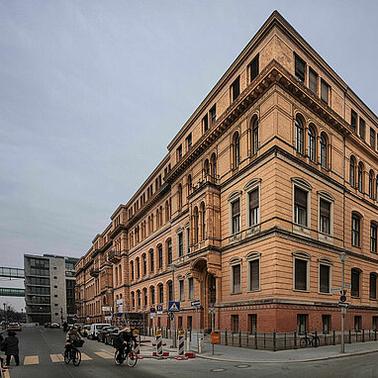
The Master In International Relations + Master Of International Affairs dual degree merges IE University’s Master in International Relations with the renowned Master of International Affairs program offered by the prestigious Hertie School in Germany. This two-year journey offers students a comprehensive exploration of global affairs, set against the vibrant backdrops of Madrid and Berlin.
PROBABILITY AND STATISTICS
This course will provide you with a rigorous introduction to the principles of probability theory and their application to statistical analysis. You’ll learn how distinct continuous and discrete probability distributions work, which in turn will provide you with an understanding on how to treat various forms of continuous and categorical data in statistical analysis.
INTERNATIONAL RELATIONS THEORY AND STRATEGY
In this course, you will analyze the foundations of the great paradigms in the theory of international relations (Realism, Liberalism, Constructivism, etc.). This will involve training in the basic methods of game theory, building on your background in microeconomics. With these methods in hand, the course will analyze the predictions made by game theory about the causes of war, the possibilities of international cooperation, and the consequences of foreign policy decisions. The general objective of the course is to help you evaluate the conditions in which each of the traditional theories of international relations is most viable, in order to improve your ability to design foreign policy and assess political risks.
CONTEMPORARY CHALLENGES AND GLOBAL ETHICS
As a professional in today’s world, you must be prepared to deal with changing visions of ethics, responsibility and efficiency in order to maximize your positive personal and organizational impact. The course re-examines the philosophical foundations of the liberal international order that prevailed in the second half of the 20th century, with a focus on the developments, debates and conclusions that led to its creation and success. The focus here will be on the views of history, justice and individual liberty that are at the heart of liberal thought, as well as their empirical embodiments in democratic governments and the global economic system.
PUBLIC POLICY DESIGN
The course introduces the basic concepts of public policy’s design and implementation. It begins with a general comparative framework to understand the different public administration models. It then proceeds to teach you the policymaking process through a hands-on methodology that helps you develop the skills and knowledge you need for the three key phases of the policymaking process: definition, design and implementation. Creating effective public policies in a dynamic environment requires a holistic approach that integrates these three phases into a single methodological framework.
TECHNOLOGY, INNOVATION AND INTERNATIONAL AFFAIRS
In this course, you will receive a practical introduction to the new technologies that are changing our societies, politics and economies. This will include breakout sessions that will give you up-to-date knowledge on developments in specific technologies and product or service markets. In addition, you’ll conduct case studies on organizational and political adaptation to better understand the opportunities and challenges that come with technological innovation.
ANALYSIS OF THE INTERNATIONAL ECONOMY
In this course, you will analyze the consequences of the decisions of governments and organizations in the field of international economics. From a macroeconomic point of view, the objective will be to evaluate monetary, trade, investment and fiscal policies—how they perform according to different criteria and goals, and how policies vary according to the context. From the microeconomic point of view, the objective will be to evaluate how decisions and organizational structures vary according to existing public-policy restrictions.
CAREER SUCCESS
Career Success is a comprehensive course designed in collaboration with top recruiters, alumni and education providers with a clear goal: to equip you with key skills you’ll need to succeed in your career strategy. The foundations you’ll build in the mandatory classes will be complemented by optional sessions in which you’ll be able to go deeper in the different areas of International Relations, Development and Applied Economics. In addition, you’ll benefit from the guidance of career experts from the first day of the program until a year after you graduate. You’ll also have access to job postings, talent forums, events and networking opportunities, all facilitated by IE Talent & Careers through the Career Portal and the IE Connects platform.
*The course takes place throughout term 1, term 2, and term 3.
DATA ANALYTICS FOR DECISION-MAKING
This course will focus on econometric applications, including linear and nonlinear models, maximum likelihood, time series analysis, causal identification, and experimental analysis. You will discover the evolving set of tools available to statisticians when making causal inferences with observational data, including instrumental variable analysis, difference-in-difference designs, and regression discontinuity. You and your peers will be assigned exercises in which you must use quantitative analysis to enhance decision-making, taking into account objectives such as organizational adaptation, economic growth and equity, and the effectiveness of public policies.
PROJECT MANAGEMENT AND IMPACT ASSESSMENT (PMIA)
This course will provide you with the necessary training to manage and lead projects. It will take an inclusive approach to all phases of the process: from project design, to budgeting and financing, implementation and impact evaluation. You will learn to use logic models, theories of change, and other logical frameworks to design projects in which activities, outcomes and objectives are clearly linked. You will also learn how projects can be tailored to strategic circumstances and how their formats and strategies vary between the public and private sectors. Finally, you’ll evaluate the different qualitative and quantitative tools available to assess whether or not a project has met its objectives.
INTERNATIONAL LAW AND INTERNATIONAL ORGANIZATIONS (ILIO)
In this course, you will complement your knowledge of strategic reasoning with a study of international law, treaties and intergovernmental organizations. The course will examine the capacity of legal foundations to condition supranational cooperation and governance. This foundation will enable you to identify areas for institutional reform and improvement, as well as policy spheres where international cooperation is less likely and/or less beneficial.
INTERNATIONAL BUSINESS AND GLOBAL MARKETS
This course delves into the development and expansion of multinational companies, taking a practical approach to understand how companies expand into global markets. This will require a basic understanding of corporate diplomacy, global value chains, consumption patterns and business culture in specific regions and sectors of international society. It will feature the use of case studies to examine challenges and opportunities that entrepreneurs face when relocating to different global regions or sectors. The class will be hands-on, introducing you to the tools and techniques needed to outline a business expansion plan.
You will be able to choose the region that most interests you from among the following: China and East Asia; Europe and North America; Africa; the Middle East and North Africa; or Latin America.
*Providing an enriching learning environment is one of our priorities. With this in mind, if only a small number of students choose a specific region, that region will not run that academic year.
HISTORY, CULTURE AND SOCIETY IN THE RESPECTIVE REGION
This course is designed to enable you to develop specialized knowledge of the history, culture, politics and political economy of a prominent global region. It will be especially relevant for those who are completing the master’s to develop a regional specialization. You will apply theoretical and conceptual frameworks of comparative research to a particular region. You’ll also gain the ability to identify connections between national, regional and international politics, and the opportunity to develop risk analysis and policies specific to each country and region.
GEOPOLITICS AND SECURITY
In this specialization, you will gain skills and knowledge necessary to confidently work in the geopolitical and diplomatic arena. Subject areas will cover global security, international negotiation, foreign policy, conflict resolution and more.
This specialization’s modules comprise Foreign Policy: Diplomacy, sanctions, and war.
FOREIGN POLICY ANALYSIS: DIPLOMACY, SANCTIONS AND WAR
In this course, you will analyze theoretical and empirical research on three main pillars of foreign policy: international diplomacy, economic sanctions, and war. This course will emphasize the relationships between these three foreign-policy instruments as a product of the strategic choice of states. You will apply the knowledge and skills learned in the Game Theory and International Strategy course to better understand the strategic logic with which states conduct foreign policy. You’ll be encouraged to use leading data sets among academics and practitioners.
INTERNATIONAL ECONOMICS AND BUSINESS
In this specialization, you will deep dive into international trade, international finance and global markets, better understanding the dynamics and trends shaping international economics. Subject areas will explore current economic themes, investment theory, policy-making, the impact of digitalization on the global economy, and more.
This specialization’s modules comprise: International Trade Policy
International Trade Policy
In this course, you will study a wide range of topics related to the study of international trade and international investment. The course begins with a rigorous and quantitative exposition of some standard and widely applied theoretical models of international money and direct capital investment, as well as trading and portfolio investment. It focuses on the functioning and challenges of the international trade regime, exploring its evolution from the General Agreement on Tariffs and Trade (GATT) to the World Trade Organization (WTO). You will study and analyze various international policies in the areas of antidumping, customs and standards, and fiscal and regulatory policy, as well as how they affect international trade and investment.
GLOBAL GOVERNANCE AND INTERNATIONAL COOPERATION
In this specialization, you will focus on international organizations and cooperation, human rights and sustainability. Subject areas will focus on collaborative efforts, new technologies, historical global activism and civic movements, the 2030 UN SDGs, and the intersection of national and international law.
This specialization comprises: Partnership Models for a changing world.
PARTNERSHIP MODELS FOR A CHANGING WORLD
This course examines an expanding range of partnership models: traditional intergovernmental collaboration; collaboration between entities in private and public sectors; collaboration between universities, foundations and governments; and collaboration between global NGOs and local communities. It will focus on case analysis to better understand the conditions and circumstances that make these various forms of cooperation and partnership effective. This course will also examine specific knowledge on the effect of new technologies and digital innovation on the future of global cooperation and on the various legal and political constraints faced by hybrid forms of collaboration.
PROJECT MANAGEMENT AND IMPACT ASSESSMENT (PMIA):
This course will provide you with the necessary training to manage and lead projects. It will take an inclusive approach to all phases of the process: from project design, to budgeting and financing, implementation and impact evaluation. You will learn to use logic models, theories of change, and other logical frameworks to design projects in which activities, outcomes and objectives are clearly linked. You will also learn how projects can be tailored to strategic circumstances and how their formats and strategies vary between the public and private sectors. Finally, you’ll evaluate the different qualitative and quantitative tools available to assess whether or not a project has met its objectives.
Providing an enriching learning environment is one of our priorities. With this in mind, if only a small number of students choose a specific region, that region will not run that academic year.
COMPARATIVE POLITICS IN A SPECIFIC REGION
In this course, you will study the chosen regional patterns of political and economic institutions, their general levels of political and economic stability, and the nature of political participation and civic society.
GEOPOLITICS AND SECURITY
The specialization in Geopolitics and Security will provide you with relevant skills for and in-depth knowledge of global security issues, international negotiation and foreign policy.
Providing a holistic overview of the geopolitical and diplomatic arena, areas covered by this specialization include: the instruments by which states strategize foreign policy, how data sets are used in conflict analysis, and game theory’s place in strategic logic.
This specialization’s modules comprise:
PEACE BUILDING AND CONFLICT RESOLUTION
This course will examine how practitioners and academics have addressed the complex reality of how states resolve their violent conflicts. A central aspect of the course will be a consideration of policy interventions through which third parties may attempt to promote peace, such as mediation, military intervention, foreign aid and peacekeeping. The course will also consider the role of transitional justice and the reintegration of combatants as part of building sustainable peace. In the course, you will assess global political interventions through comparative data and case analysis.
SOURCES OF POLITICAL INSTABILITY
In this course, you will gain a deeper understanding of the variety of political regimes in contemporary international politics and their implications for political instability. You will be challenged to problematize one of the basic units of international relations: the modern nation state. The course will consider how political regimes develop and are maintained, as well as why they sometimes fail. It will also analyze how leaders compete for and consolidate political power.
INTERNATIONAL TERRORISM
This course examines both the intellectual origins of the concept of “terrorism” and the history of its use as a political strategy in the 20th and 21st centuries, considering the many varieties of terrorism over time and around the world. The course will consider various approaches to the study of terrorism, with an emphasis on theories that can explain terrorism and inform counterterrorism efforts. You will be expected to engage with other major conceptualizations of terrorism developed by scholars and policymakers as part of a project assignment.
GEOPOLITICS AND DIPLOMACY IN THE DIGITAL AGE
This course considers the impact of new technologies in the digital age, such as artificial intelligence, autonomous military systems, social media, and digital fact-checking on geopolitics and diplomacy. The challenges derived from new technologies—such as contamination, cyberattacks and external intervention in elections—will be central topics of the course. However, the course will also consider the ways in which new technologies provide opportunities to foster peace and support diplomacy.
INTERNATIONAL ECONOMICS AND BUSINESS
The International Economics and Business specialization provides analytical expertise and in-depth knowledge of international trade, international finance and global markets. Beginning with a thorough analysis of cutting-edge international trade and investment theory, you’ll also explore international policy-making, standards and customs, including how national strategies affect those models.
You will also gain an understanding of the main actors, institutions and structures that shape the global economy, analyzing the history of political economy theory and covering subjects including interest, exchange rates, and sovereign wealth.
The modules comprise:
INTERNATIONAL MONEY AND FINANCE
This course examines monetary theory, money and international finance. Furthermore, it will provide you with the theories and skills necessary to understand and analyze the main agents, institutions, and structures that have shaped the political economy of the international monetary and financial system, from the gold standard of the 19th century to the global financial crisis and the euro zone debt crisis of the first two decades of the 21st century. In doing so, it covers topics such as the balance of payments, interest rate and exchange rate systems, purchasing power parity, real exchange rates, debt financing, and sovereign wealth.
PUBLIC AND REGULATORY AFFAIRS
This course focuses mainly on the relations between companies and governments in a globalized economic environment, delving into issues such as industrial trade policy, public procurement and the regulation and certification of products in both developed and developing countries. The theoretical content of this module is at the intersection of international political economy, public management, international economics and public economics. The interaction between (private) market actors and (public) non-commercial institutions is a central issue in the evolution of globalization. More specifically, this module examines the regulatory impact of public and international institutions in the fields of development policy, energy policy, public-private partnership, corporate social responsibility, sustainability and social entrepreneurship.
GLOBAL VALUE CHAINS AND BUSINESS EXPANSION
This course examines the role of global value chains in world trade. It focuses primarily on the political economy of import and export, multinational corporations, and the increasing internationalization and diversification of production in the new global economy. It seeks to examine corporate strategies with respect to internationalizing their sales, internalizing their production, designing a global strategy, positioning themselves within global markets, and taking advantage of regulatory arbitrage between countries. By extension, it delves into the implications of the proliferation of global value chains for technology diffusion, national industrial and investment policies, product safety and security, rules of origin, and multilateral trade cooperation
DIGITAL CHANGE IN THE GLOBAL ECONOMY
This course seeks to analyze the transforming effect of digitalization on the various facets of the global economy, and the resulting opportunities and threats from an applied multidisciplinary perspective. The advent of digitalization, artificial intelligence, blockchain technology, machine learning, big data, and the Internet of Things has caused a systemic change in the way we communicate, transact, and process information, reshaping the structure of the global economy.
GLOBAL GOVERNANCE AND INTERNATIONAL COOPERATION
This specialization is about international organizations and cooperation, human rights and sustainability. It addresses the growing importance of collaborative efforts between governments, research institutions, corporate organizations and global NGOs. The new technologies and innovations that are disrupting global cooperation are analyzed, giving you a broad overview of how the so-called “global society” is structured today.
You will understand the historical background of global activism and civic movements, looking at key specifics such as gender equality, human rights and environmental activism. They will also analyze the challenges posed to activism by global social networks.
This specialization comprises:
INTERNATIONAL SOCIETY AND GLOBAL ACTIVISM
This course examines global civic movements and activism campaigns from a historical, sociological and organizational perspective. It looks at how activist movements and campaigns in diverse areas such as climate, gender, and human rights can secure participants, resources and organizational infrastructure in pursuit of ethical and political goals. It also discusses the challenges and opportunities posed to global activism by new digital tools and social media, as well as the legal, cultural and organizational challenges associated with fostering cooperation between decentralized individuals in different countries.
CLIMATE CANGE AND INTERNATIONAL ENVIONMETAL COOPERATION
This course examines the evolving role that the international community has played in reducing poverty and inequality around the world. It also looks at the various ways in which environmental and social concerns are becoming integrated into traditional development practices that rely more on micro- and macroeconomic incentives. Special attention will be paid to the 2030 Agenda and its emphasis on the interdependence between public policies in the spheres of the economy, the environment and governance. The general theme will be to map out the most effective ways in which partnerships between states, communities and organizations can take advantage of these complementarities, and avoid negative externalities in the search for a more prosperous and sustainable world.
EUROPEAN UNION POLITICS AND POLICY (*CIVIA PARTNERSHIP)
This course analyzes the legal development of European integration, as well as the expanding scope of policies that are the responsibility of the EU rather than national governments: production policies, innovation, finance, trade and security. It focuses on the institutional and legal challenges facing current integration efforts, as well as the search for institutional reforms and political strategies that can improve the effectiveness of the EU. A series of sessions will specifically look at the EU’s response to the COVID-19 pandemic, and the European capacity to expand its coordination in the field of health.
HUMAN RIGHTS: POLICY AND PRACTICE
This course will examine the broad legal infrastructure that exists at the intersection of national and international law and seeks to protect basic political and civil rights. You will analyze how legal restrictions meet political realities, as well as organizational strategies to defend rights in uncertain and crisis environments. Additionally, you will analyze the evolving notion of rights, with a focus on dimensions such as gender and economic rights and how such dimensions interact, reinforce and conflict with traditional notions based on civil liberties and freedom from state violence.
- PRE-PROGRAM
- TERMS10 months
- Final project
- ADD-ONS
- DUAL DEGREES WITH PARTNER UNIVERSITIES
*Please note that our program content is continually updated to remain in sync with market demands. Therefore, we advise you that the content is subject to change and it can be dependent on student demand.
Save the Date
Save the Date
Open House at Madrid: Don't miss the opportunity to engage with top faculty & connect with a powerful alumni network
Learn more about the three specialization options:
GEOPOLITICS AND DIPLOMACY
This specialization focuses on the skills and knowledge you’ll need to work with confidence in the geopolitical and diplomatic arena. Familiarize yourself with the current global security outlook and challenges, explore international negotiation techniques and foreign policy tools, and look at modern conflict-resolution methods. You’ll also analyze how foreign policy works and how inter-state relations are affected by global trends.
INTERNATIONAL ECONOMICS AND BUSINESS
In this specialization, you will deep dive into international trade, finance and global markets. Contemporary economic themes, investment theory, policy-making, and the impact of digitalization on the global economy and global supply chains will all feature. You’ll also examine the international institutional frameworks within which global economic policies are constructed and implemented and businesses operate.
GLOBAL GOVERNANCE AND INTERNATIONAL COOPERATION
This specialization focuses on international organizations and cooperation, human rights and sustainability. Subject areas will center on collaborative efforts, examining a range of partnership models including inter-governmental and public-private partnerships. It will also examine the impact of technological development on international cooperation, and recent developments in global governance arrangements. The UN’s 2030 Agenda and the SDGs are a key focus of this specialization.
ONE-WEEK FIELDTRIP TO BRUSSELS
In between the second and third terms, you’ll take a fieldwork trip to Brussels, where you’ll visit and learn from regional and global players in the space of international relations. Our partners in these trips include the European Commission, the European Parliament and NATO, as well as private-sector and civil-society organizations.
This week-long trip also includes visits to European institutions, think tanks, companies and international organizations such as NATO, among others*. These are outstanding opportunities to come face to face with these institutions’ world-shaping work.
* Visits to organizations may vary from one year to another.
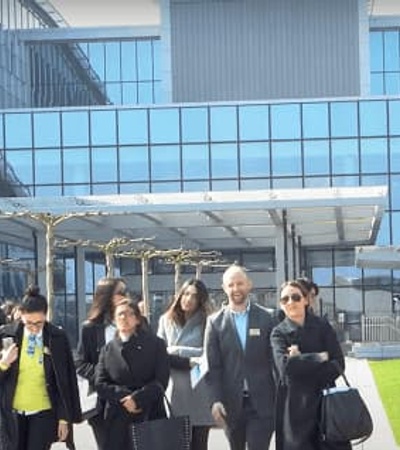
WANT TO HEAR MORE ABOUT PAST STUDENTS EXPERIENCES IN BRUSSELS?
- 1Optional extra semester abroad
- 14Partner universities
- 25%of MIR students do an exchange program
PARTNER UNIVERSITIES FOR THE EXCHANGES
You can personalize your program by spending an additional semester at one of our partner universities worldwide, following the third and final semester in Madrid. Our agreements with these institutions offer you the chance to gain international experience and expand your learning at some of the world's top universities.
NOTE: Spots are limited in all exchange programs. Upon acceptance into an exchange program, there is a fee for reserving your place, but tuition at the partner institution is free of charge. You'll only need to cover your living expenses while there.
SCIENCES PO
UNIVERSITY OF PITTSBURGH
UNIVERSIDAD DE SAN ANDRÉS
UNIVERSITY OF ST. GALLEN
UNIVERSITY OF TORONTO, MUNK SCHOOL OF GLOBAL AFFAIRS
AMERICAN UNIVERSITY OF BEIRUT
UNIVERSITY OF ICELAND
TECHNICAL UNIVERSITY OF MUNICH
UNIVERSITY OF BOLOGNA (ITALY)
UNIVERSITY OF MILAN
LUISS, ROMA
Central European University (CEU)
Kautilya School of Public Policy
Hochschule für Politik München / Bavarian School of Public Policy
CAPSTONE PARTNERS
For their final project, students of the Master in International Relations can choose between an individual, research-oriented thesis or a practical team-based Capstone Consulting Project. Underneath you can find capstone partners for the Master in International Relations.
NOTE: The partners listed here are from previous intakes. Partnering institutions may vary from year to year.
OUR PARTNERSHIPS AND MEMBERSHIPS
The Master in International Relations also closely collaborates with many other partner institutions. Thanks to these collaborations, you’ll benefit from enhanced courses, capstone project opportunities and electives, alongside career-enhancing internship opportunities. Furthermore, thanks to the increasing recognition of our outstanding faculty, IE University is now a full member of the most prestigious organizations and networks in its academic space: the Association of Professional Schools of International Affairs (APSIA), the Network of Schools of Public Policy, Affairs and Administration (NASPAA), the European Consortium for Political Research (ECPR).
Frequently Asked Questions
Is international relations a good career?
The Master in International Relations has been carefully curated to lead you to a rewarding career in which you can make a lasting impact in a variety of roles and sectors. The program opens the door to a myriad of possibilities.
How much does an international relations major earn?
92% of all International Relations graduates received a job offer in a wide range of roles and sectors within three months of graduation. Salaries vary depending on the area, from the public & institutional sector and intergovernmental organizations to NGOs, think tanks and lobbying firms.
How do I prepare for a masters in international relations?
As a top school for international relations programs, IE University requires online assessments, placement exams and in-person or virtual meetings to assess candidates. Make sure you have your forms ready and feel comfortable with answering questions about your professional skills and background. The final decision comes after a personal interview.
What classes should I take for international relations?
International Relations students at IE University choose one of four focus areas. These include Management and Analytical Skills, Geopolitics and Diplomacy, International Economics and Business, and Global Governance and International Cooperation. Students also designate a geographic specialization to accompany their studies.
How long is a masters in international relations?
Instructed in English, the IE Master in International Relations is a 10-month, in-person program based in Madrid with a one-week trip to Brussels with the option of an additional semester abroad. Students experience hands-on learning in leading organizations, making it one of the best master’s in international relations available






